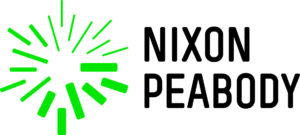
As a craft brewer, you cannot escape the stark reality that your product is alcohol. Beyond what is needed for purposes of quality control, many employees may be tempted to indulge (or over-indulge) in your product during working hours. While you certainly do not want to restrict an employee’s ability to enjoy the fruit of their labors, as an employer, an employee drinking during work shifts raises a whole host of potential labor and employment issues.
Employee Safety, Workplace Accidents and Third Party Liability:
I do not think that I am going out on a limb by stating that an employee who has been drinking has a greater chance of being involved in a workplace accident. While workers’ compensation insurance generally does not cover accidents arising from employee’s use of drugs or alcohol in the workplace, to the extent such drinking is allowed, condoned and/or encouraged, there is a chance that a claim under those circumstances could be successful. Setting aside for the moment who is responsible for paying the medical bills, a workplace accident could potentially rob the employer of a valuable employee for an extended period of time. An intoxicated employee not only puts himself at risk, but co-workers as well, especially when operating heavy machinery. Finally, employers need to be concerned about intoxicated employees and their interactions with clients, customers and patrons, as well as potential liability once they get into their cars to drive home, make deliveries, etc.
Increased Chance of Sexual Harassment:
Pursuant to state and federal law, employers are obligated to ensure that the workplace is free from discrimination and harassment, including sexual harassment. Needless to say, after an employee has had a few drinks, there is an increased chance of inappropriate conduct towards co-workers in the workplace. As I often say during management training: “Alcohol may lower inhibitions, but it does not lower liability.” Employers are responsible for ensuring that their employees do not sexually harass one another in the workplace and adding alcohol to the mix only increases the chances of such conduct.
Lost Productivity:
Personally, the last thing I want to do after having a few beers is work. I would suspect that your employees feel the same way. Allowing employees to drink during working hours can significantly impact the employee’s productivity and performance, which, in turn, impacts the quality of your product, as well as your profits. An employee’s decreased productivity or performance will also become an issue that you—as the employer—will have to address in terms of feedback and possibly disciplinary action.
While one option may be to have a blanket prohibition against drinking during work shifts, for certain employees such as salespeople, drinking during company-sponsored events or with clients may be expected and/or condoned as part of the company’s marketing and sales efforts. That being said, it is important that each craft brewer should have a written policy addressing the use of alcohol in the workplace. Once that policy is in place, make sure it is strictly and consistently enforced.
